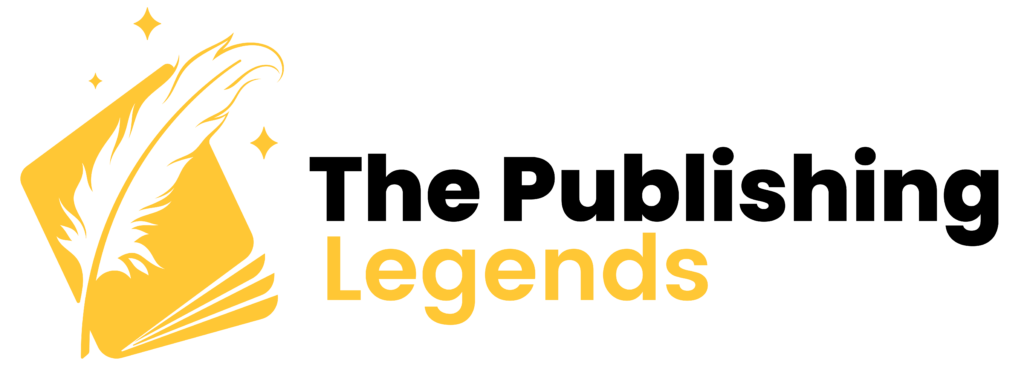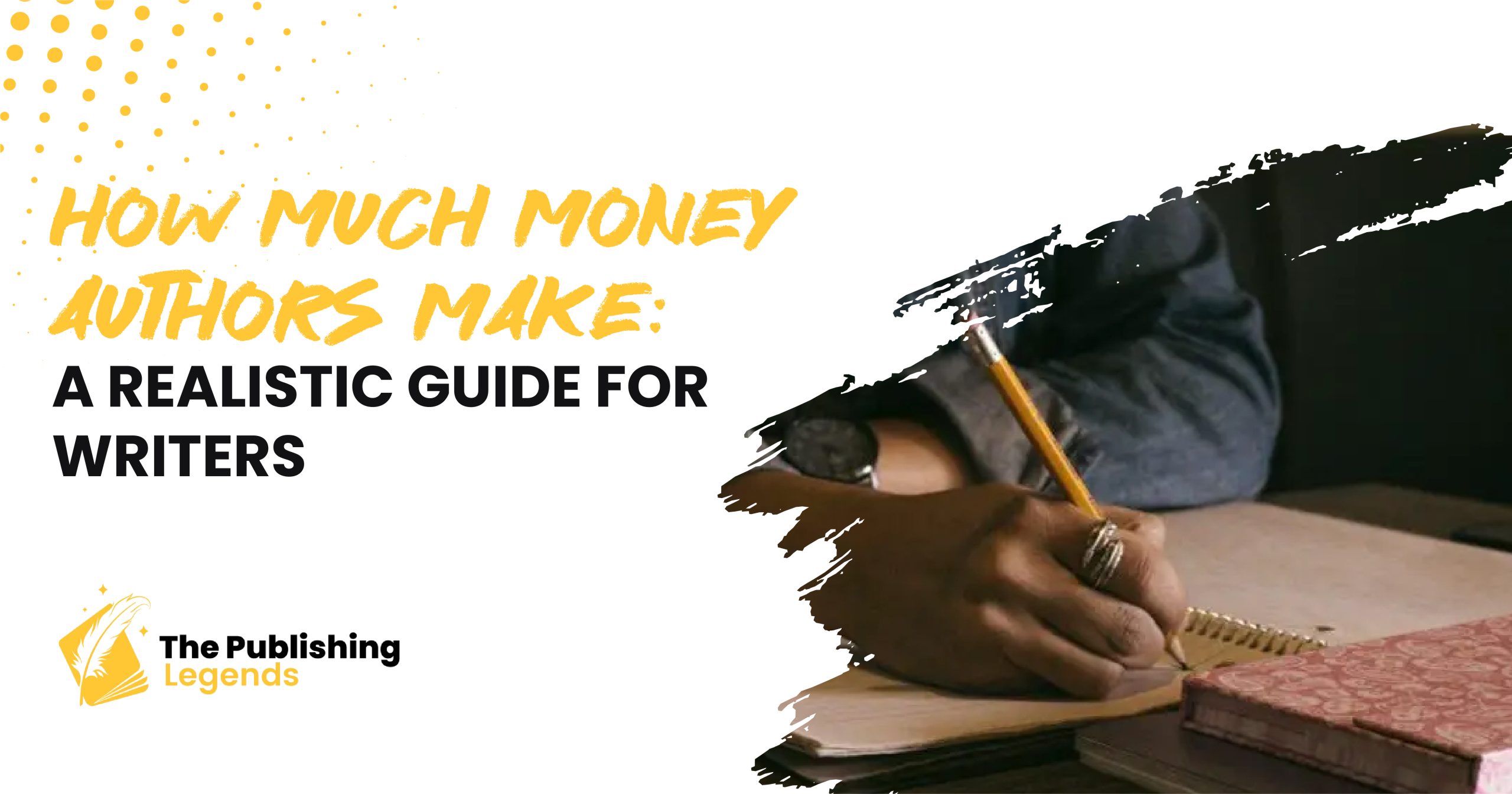Introduction: The Dream vs. The Reality
Nearly all authors have dreamed about having a bestseller under their belt, seeing their name on the shelves of bookstores, and having a comfortable income out of their profession. Although that dream is fulfillable in a few cases, the reality is more subtle. The fact is that the author’s income changes radically depending on such aspects as the publishing path, the number of readers, the promotion plan, and the genre. Generally, writing is not an overnight success story, and it starts as a passion project that results in a long-term career.
This guide lifts the veil about the author’s income world. We will discuss the operation of traditional publishing contracts, the economics of self-publishing, and the numerous other sources of income that authors use to earn a living. No matter whether you have a dream of composing your first novel or have already become a part of the world of publication, this detailed breakdown will assist you in setting the realistic expectations and mapping a successful career.
Need professional advice on your publishing process? The Publishing Legends provide personalized assistance to authors, helping them bring their stories to the world and find their ideal audience.
Breaking Down the Author Industry Landscape
It is necessary to examine the publishing industry in order to see how much authors make. Authors currently have three major options: traditional publishing, self-publishing (indie publishing), and hybrid publishing. Each is associated with its own earnings potential and varying amounts of support and creative control.
- Traditional Publishing: This is the old-fashioned method in which a publishing firm purchases the rights to your book and offers editing, design, marketing, and distribution. They normally give up some control and a large portion of revenue, and authors tend to earn an advance and royalties.
- Self-Publishing: Self-publishing, often via companies such as Amazon Kindle Direct Publishing (KDP) or IngramSpark, is a situation in which the authors serve as their own publishers. Although it requires an initial investment and personal marketing, self-publishing offers authors larger royalties and complete control.
- Hybrid Publishing: A middle ground between traditional and self-publishing. Authors pay for certain services but retain more creative control and a larger share of royalties.
Earnings vary widely depending on which path you choose, your audience size, and your marketing strategy. Let’s dive deeper into each model to see where the money comes from.
Traditional Publishing: How Authors Are Paid
Traditional publishing can be considered the gold standard since it offers validation, credibility, and access to professional assistance. Nevertheless, it amazes many novice writers the simplicity and obscurity of the pay structure.
Advances:
Traditional publishers normally give a lump sum advance, a lump sum payment against the royalties they will get in the future. First-time authors have been known to get between five and fifteen thousand dollars in advance, but famous authors or stars can be offered six or seven-figure deals. The payment for this development is in installments, usually divided into signing the contract, delivery of the manuscript, and publication.
Royalties:
When the sales of the book meet the advance they made, the authors get the royalties. Typical royalty rates are:
- Hardcover: 10–15% of the list price
- Paperback: 5–8% of the list price
- eBooks: 25% of the publisher’s net revenue
For example, if your hardcover book retails for $25 and you earn 10%, you make $2.50 per copy. If your advance is $10,000, you need to sell 4,000 copies before receiving additional royalty payments.
Ready to turn your manuscript into a published book? Explore our full publishing services.
Agent Commissions and Publisher Cuts:
The vast majority of traditionally published writers deal with a literary agent, who usually commands a 15% percentage of all book contracts. Book revenue is also shared by publishers, with a significant percentage of the revenue used to cover the production, distribution, and marketing expenses of the publication.
Self-Publishing: Potential and Pitfalls
Self-publishing has revolutionized the book industry, allowing writers to bypass traditional gatekeepers and take full control of their work. With platforms like Amazon KDP, Draft2Digital, and IngramSpark, authors can upload manuscripts, create print-on-demand paperbacks, and reach a global audience.
Royalties:
One of the biggest advantages of self-publishing is the royalty structure. Authors typically earn:
- 70% royalty on eBooks priced between $2.99–$9.99
- 40–60% royalty on print books, depending on printing costs and sales channels
For example, selling a $4.99 eBook on Amazon would earn you roughly $3.50 per copy, significantly higher than traditional publishing.
Costs:
However, self-publishing requires authors to invest upfront in editing, cover design, formatting, and marketing. These services can range from $1,000 to $ 5,000 or more, depending on the quality. Authors must also handle promotion, which can involve paid advertising, social media campaigns, and building an email list.
Success Stories and Realities:
While some indie authors earn six figures annually, many sell fewer than 200 copies of their book. Self-publishing rewards those who treat their writing like a business, producing multiple books, targeting niche audiences, and actively marketing their work.
Average Author Earnings: By Experience Level
Let’s break down how much authors make based on career stage:
Although traditional publishing is prestigious and professionally supported, authors hardly make money without a large advance or sales of tens of thousands.
- New Authors: The majority of beginning authors, traditional and self-published, have low earnings. The surveys indicate that a large number of first-time authors earn less than $5000 on their first book. At the start, writing is usually a side job.
- Mid-List Authors: These writers are always publishing and gaining readers. An average traditionally published writer with a mid-list may make between 10,000 and 50,000 a year, whereas a successful self-published writer in this category may make more, particularly when the writer has more than one book.
- Bestselling Authors: They are outliers. A bestseller can easily sell hundreds of thousands of copies, earning six or seven-figure incomes, movie rights, and invitations to speak. However, the proportion of authors who reach this level is very small.
In recent years, the median income of full-time authors in the U.S. was about $20,000/year, according to a survey conducted by the Authors Guild,while part-time authors reported much lower figures.
The Role of Marketing in an Author’s Income
To the majority of authors, marketing is the biggest element that can make their book gain several hundred dollars or become a consistent source of revenue. Digital publishing has given authors the ability to bypass publishers and bookstores as the sole means of marketing their work. Even more traditional authors are supposed to have their platforms and reach their audience directly.
Marketing is a powerful process that must start well before the publication of a book. Most successful authors begin with an author platform, which includes a site, email newsletter, a social media page, and a regular brand, as well. A loyal following will imply that we already have a ready audience whenever a new product is put out in the market, and the sales are made on the first day. Marketing approaches such as content marketing (blogging, podcasting, and guest appearances), email newsletters, and social media campaigns can help authors expand their circle of devoted fans over the long term.
Another effective method that can be used by such authors as a means of increased income is paid advertising. Such platforms as Amazon Ads, BookBub, and Facebook Ads enable writers to show their ads to people who like a particular genre or age group or have specific reading habits. Although advertisements need capital, they could be very effective in increasing the sales of books, particularly when it comes to self-published writers who have the power to control the expenses on books, including prices and royalties.
Besides the online practices, several writers make more money by using offline promotion. There is the increased visibility and credibility caused by book signings, library readings, local press interviews, literary festivals, etc. Connecting with other writers and people of influence is also beneficial in reaching a wider audience.
The bottom line is that a book that is well-marketed enjoys a longer shelf life and greater earning potential. It does not just sell books, and even the most gifted writers are forced to accept marketing as their profession. With creative storytelling and proper promotion, writers will be able to build a consistent revenue stream and make readers their lifelong followers as well as establish a successful career.
How Genre Impacts Author Earnings
Not all book genres are created equal when it comes to revenue potential. Genre plays a crucial role in determining how much authors can earn, often influencing marketing strategies, audience size, and publishing decisions. For example, romance, mystery, fantasy, and thriller genres consistently rank among the most profitable, largely due to their dedicated readerships and high demand for series. Romance authors in particular often thrive by self-publishing eBook series, building loyal fan bases that eagerly await every installment.
Nonfiction books also offer strong earning opportunities, especially in niche categories. Topics like personal finance, health, business, and self-help can be extremely profitable if authors position themselves as subject matter experts. Nonfiction writers often leverage their books as marketing tools for speaking gigs, consulting work, or online courses, leading to significantly higher total income compared to book sales alone.
On the other hand, literary fiction, while critically acclaimed, tends to have a smaller audience, which can limit sales. However, literary fiction authors often find opportunities in grants, residencies, and awards, supplementing their income in other ways. Similarly, children’s book authors may earn less per book due to lower price points but can make up for it through consistent sales, school visits, and licensing opportunities.
Genre choice also impacts publishing strategy. Commercial fiction authors often lean toward self-publishing for faster release schedules, while nonfiction authors with strong professional credentials may benefit from traditional publishing’s credibility and distribution networks. Understanding the market trends in your genre helps you position yourself strategically, choose the right publishing model, and set realistic income expectations.
In short, genre isn’t just about creativity; it’s also about business. Writers who balance passion with an awareness of market demand can carve out a more profitable career.
Building a Long-Term Career as an Author
Most writers lack the funds to sustain themselves since they only view writing as a one time venture and not a business. Although releasing a book is an impressive accomplishment, a sustainable income level can be achieved by creating a career that incorporates more than just a book, an author brand, and other sources of revenue.
Consistency is a starting point for a long-term career. Good writers frequently publish new material on a regular basis, be it in a book release every year, blog posts, newsletter, or social media interaction. This continuous availability keeps readers interested, and the book sales do not end up stagnating after the release date. The other effective strategy is writing a series because it will promote binge reading and create anticipation of subsequent publications.
The other secret to a long life is diversification. Earning authors tend to branch out to other related opportunities: speaking, offering writing classes, developing online courses, and consulting. These can only supplement income, and build the reputation and reach of an author.
Teamwork also has the potential to boost career advancement. Writing books with a co-author, or even taking part in an anthology, or cross-selling with other authors, exposes you to new audiences and can help you sell more copies. Even successful authors spend their money on professional growth-attending conferences, taking courses, and being aware of the trends in publishing.
Probably, most importantly, successful writers in the long term run their writing as a business. This will involve budgeting for editing, cover design, and marketing; determining measurable sales targets; and measuring income over a specified period. Thinking entrepreneurially will allow authors to build a sustainable career instead of having to depend on the performance of one particular book.
Being an author is not about gaining fame overnight, but rather patience, planning, and persistence. Those writers who invest in their profession, are willing to market their work and venture into the uncharted areas will have their earnings increase every single year, and they will have made their hobby a successful career.
Want professional help editing or formatting your book? Work with expert editors today.
Book Sales Math: What Authors Really Earn Per Copy
Understanding how much money authors make requires looking at the numbers per book sale:
Traditional Publishing Example:
- Hardcover: $25 retail price, 10% royalty = $2.50 per book.
- Paperback: $15 retail price, 7.5% royalty = $1.12 per book.
- eBook: $9.99 retail price, 25% of net (about 12.5% of retail) = $1.25 per book.
Self-Publishing Example:
- eBook: $4.99 price, 70% royalty = ~$3.50 per book.
- Paperback: $14.99 price, ~60% royalty = ~$5 per book (minus printing costs).
To earn $50,000 annually, a self-published author selling a $4.99 eBook would need to sell around 14,300 copies per year. A traditionally published author would need to sell many more to reach the same income, given lower royalty rates.
This math shows why so many authors diversify their income and publish multiple books to boost earnings.
Beyond Books: Other Income Streams for Authors
For most writers, book sales alone aren’t enough to make a full-time living. Successful authors often diversify their income:
- Speaking Engagements: Authors can earn between $500 and $10,000+ per event depending on expertise and audience size.
- Workshops and Teaching: Offering writing courses, coaching, or online workshops is a popular way to supplement book income.
- Freelance Writing and Editing: Many authors work as freelance writers, editors, or ghostwriters to earn additional revenue.
- Film and TV Rights: Selling adaptation rights can result in substantial payouts, though these deals are rare.
- Patreon and Membership Platforms: Authors build communities of dedicated readers who support them monthly in exchange for exclusive content.
- Merchandise: Branded merchandise, special editions, or companion products tied to a book series can be highly profitable.
Building a career as an author often means becoming an entrepreneur, leveraging creativity in multiple ways to create sustainable income.
Factors That Affect Author Earnings
Many factors influence how much an author can make:
- Genre: Romance, thriller, fantasy, and mystery are popular genres with loyal readers, often resulting in higher earnings. Niche nonfiction can also be lucrative if marketed well.
- Marketing Effort: Authors with a strong personal brand, email list, or social media presence have a significant advantage.
- Publishing Platform: Self-publishing typically offers higher royalty rates but requires more business acumen.
- Number of Books: Authors with multiple titles often earn exponentially more than those with just one book. Writing a series is a proven way to increase lifetime earnings.
Common Myths About Author Income
There’s a common stereotype that publishing a book automatically makes an author wealthy. In reality, even famous authors often rely on multiple revenue streams. Book advances aren’t “free money”; they’re pre-payments against future sales. And self-publishing success stories represent the top percentage of indie authors. Writing is a rewarding career, but it requires persistence, strategy, and patience to build financial stability.
Practical Tips to Increase Your Earnings
If your goal is to earn a living as an author, here are some actionable strategies:
- Build a platform early with a professional author website, email newsletter, and social media presence.
- Invest in quality editing, design, and marketing to make your book stand out.
- Consider writing a series or multiple books to build momentum and recurring sales.
- Network with literary agents, editors, and author communities to stay connected with opportunities.
- Explore speaking, teaching, or freelance writing to supplement book sales.
Want personalized support to take your author career to the next level? The Publishing Legends offers expert editing, publishing strategy, and book marketing services.
Conclusion: The Honest Truth About Making Money as an Author
Writing a book is one of the most fulfilling creative achievements, but turning it into a steady income requires more than passion. The reality is that most authors start small, build their audience over time, and diversify their earnings beyond book sales. Traditional publishing offers credibility and distribution, while self-publishing gives authors control and higher royalties, but neither guarantees instant wealth.
The authors who succeed treat writing as both an art and a business, creating high-quality work and connecting deeply with their readers. If you’re ready to take your next step as a writer, The Publishing Legends is here to guide you from manuscript to market, helping you turn your vision into a lasting legacy.




